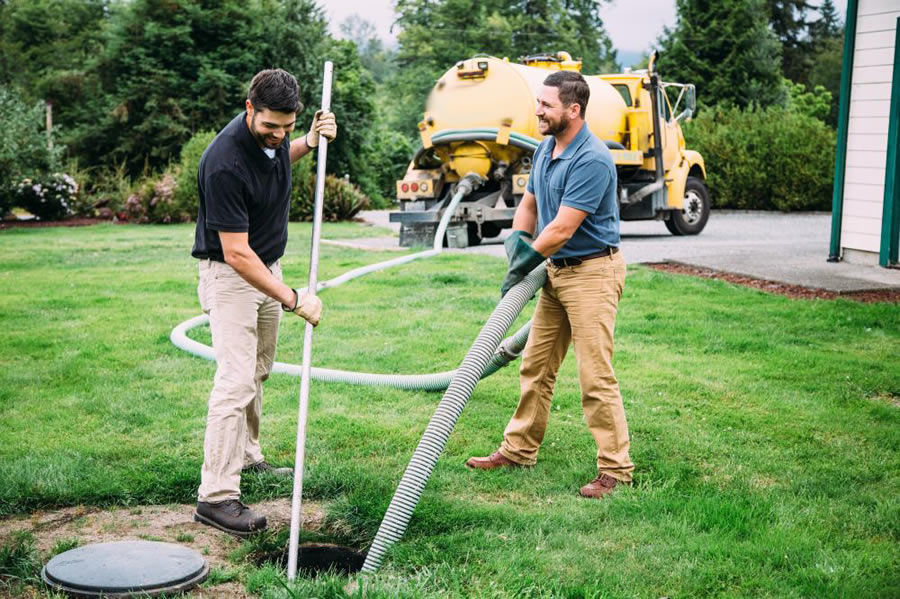Get It Safely Pumped Today
Get It Safely Pumped Today
A septic system backup is a household emergency that can bring everything to a standstill. Toilets won’t flush, drains bubble and gurgle, and suddenly you’re scrambling to figure out what went wrong. While no one wants to deal with this situation, knowing what to do and what not to do is important. SEptic Pumping of Raleigh is here to help. Read more to learn about the warning signs, professional solutions, and prevention strategies so you can handle a backup with confidence.
Septic systems rarely fail without giving hints. The challenge is that most people don’t recognize them until it’s too late. Some of the most common early indicators include:

These may seem minor at first, but they signal that your septic tank is reaching capacity or that wastewater is struggling to move through the system. Acting at this stage is far easier and less expensive than waiting for a full backup.
There are a few main reasons septic systems back up, and most are preventable. The most common cause is simply that the tank has not been pumped in time. Over the years, solids settle at the bottom, and if they’re not removed, they block normal flow. Other causes include clogs in the plumbing lines, tree roots invading pipes, or problems in the drain field. Each of these issues builds gradually, but when they reach a tipping point, the result can be sudden and disruptive. Understanding why helps homeowners see that backups are the outcome of deferred septic service or overlooked warning signs.
When you notice wastewater coming back into your sinks, toilets, or tubs, your instinct may be to try flushing again or running extra water to push it through. Unfortunately, that only makes things worse. The very first step is to stop using water immediately. Pause laundry, dishwashing, showers, and any non-essential water use until a professional can check the system. Reducing the strain prevents additional waste from entering an already overloaded tank. The second step is to call a professional septic company right away. This is not the time for quick fixes or household drain cleaners. Septic systems are tied directly to your family’s health and your property’s sanitation. A trained technician will have the tools to safely diagnose the issue, provide reliable septic cleaning, and prevent issues from getting worse.
When a technician arrives, one of the first steps is to inspect the tank and lines to confirm the cause of the backup. If the tank is overdue for maintenance, you might need a septic tank pumping. This process removes the built-up solids and liquids so the system can work again. In many cases, technicians also perform septic tank cleaning right after pumping. Septic cleaning clears out any leftover residue and helps restore balance inside the tank. Together, these two services will stop the current issue but reset the system so it can operate efficiently. A skilled technician will also check the drain field and other components to make sure the backup wasn’t caused by a clog or structural problem. If issues are found, they’ll walk you through what needs to be repaired and how to prevent it from recurring.
Maintenance isn’t just about what the professionals do. It’s also important how you use your system day to day. A few practical habits make your system last longer:
It may feel tempting to delay pumping or routine service in order to save money, but the reality is that septic backups are far more expensive than maintenance. Emergency service, potential cleanup of contaminated water, and repair or replacement of parts of the system can add up quickly. Compared to those costs, the price of preventive care is minimal. Neglecting your septic system can harm the environment by contaminating groundwater and soil, too. Routine care extends the lifespan of your system and protects the value of your property. Many homeowners report that once they get on a regular schedule of maintenance, they rarely think about their septic system again, and that’s the goal.
A septic system backup is one of the most disruptive household problems you can face, but it doesn’t have to become a disaster. Services like septic tank pumping and septic tank cleaning take care of buildup before it causes trouble. The best time to take action is before there’s a problem. Call Septic Pumping of Raleigh today and schedule your next septic service.
Standing water in your yard is never a good sign, but when it shows up near your septic tank, you'll want…
Scheduling a septic service appointment is easy enough, but most homeowners have no idea what's supposed to happen once the truck…
Anyone can show up with a truck and a hose, but septic work isn't just about pumping and leaving. The difference…
The buried tank in your yard works around the clock to process everything that goes down your drains. And, it does…